Not sure how to lose baby weight while breastfeeding? We provide 7 gentle and sustainable weight loss tips that won’t impact milk supply.
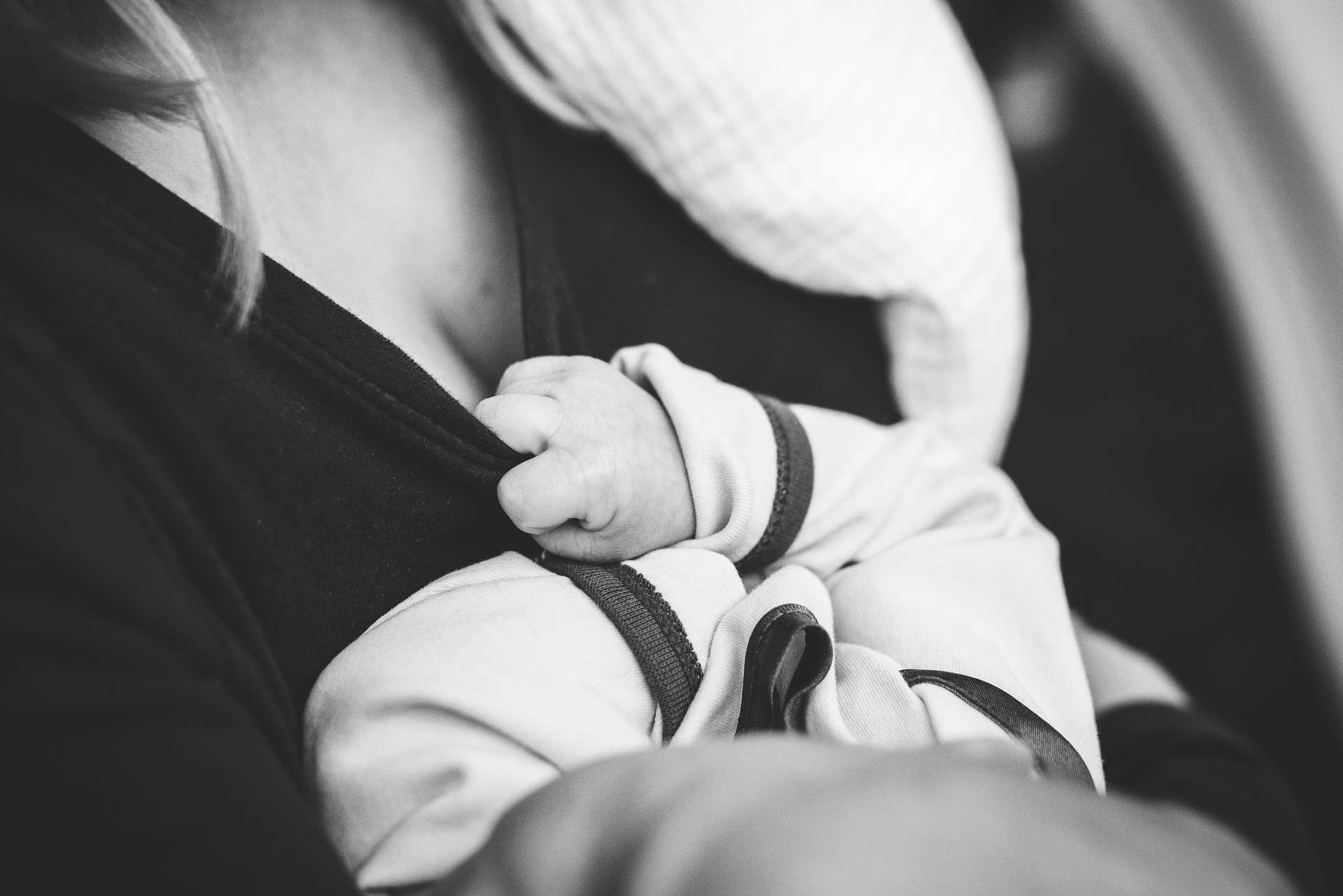
When it comes to losing baby weight postpartum, one of the first pieces of advice you’ll often hear is that breastfeeding is the easiest way to shed those extra baby pounds. Whether or not you can actually lose weight while breastfeeding is a controversial hot topic that I have covered in depth in my blog post on whether breastfeeding causes weight loss or weight GAIN.
However, if you have landed here because your weight loss expectations have not been met, and you want to know how to lose baby weight while breastfeeding without going on a fad diet and impacting your milk supply, then you have come to the right place. We break down everything you need to know about how to lose baby weight while breastfeeding and provide 7 dietitian approved gentle nutrition tips that support sustainable weight loss.
Do All Women Lose Weight Breastfeeding?
Breastfeeding has been positioned as a postpartum weight loss hack for generations and you have probably heard said “success stories” somewhere down the pipeline. Perhaps so and so’s neighbour lost all her baby weight from breastfeeding and your cousin Karen is thinner than she was BEFORE she became pregnant. They didn’t even have to set foot in the gym or go on a fad diet. This was all apparently achieved just through the magic of breastfeeding. But do ALL women across the board lose weight while breastfeeding?
Well, unfortunately the evidence isn’t that cut and dry. While some research suggests that women who breastfeed lose more weight compared to non-breastfeeding mothers, other research found no clear association with breastfeeding and weight loss. There is even some research to suggest that some women might GAIN weight from breastfeeding. Confusing plot twist, I know. So to cut through the clutter behind why some women lose weight breastfeeding while others don’t, let’s break down the 2 common factors that impact postpartum weight loss – hormones and lifestyle.
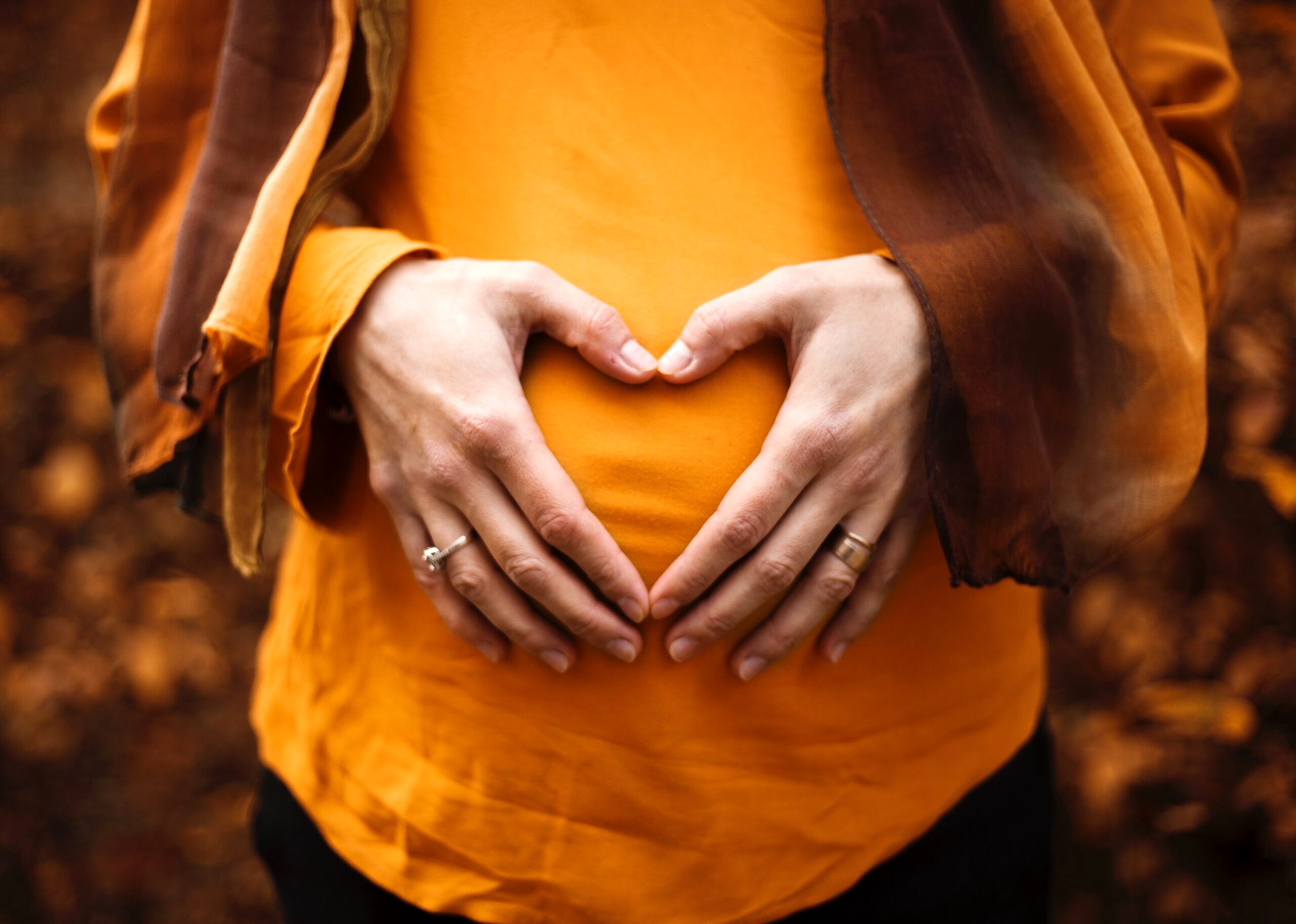
#1. Hormones
Cortisol (Stress Hormone)
Research suggests that most postpartum women will experience increases in cortisol levels after giving birth. We also know that high cortisol levels for prolonged periods is associated with weight retention. In fact, one study found that those who experienced postpartum depression retained anywhere from 1-11 lbs. So if you are struggling to get a hold on your mental health while adjusting to the ups and downs of motherhood, 1) know that you are not alone in the struggle, and 2) consider putting your weight loss goals on the back burner for now and focus on behaviours that can support your mental wellbeing.
Prolactin
Prolactin hormone is increased during pregnancy to help stimulate milk production after giving birth. Some research suggests that increases in this hormone might also be responsible for stimulating appetite and slowing down fat metabolism. While this doesn’t necessarily mean that weight loss is impossible, there is some animal research showing that reduced prolactin levels was associated with 25-49% reduced fat stores. This may evolutionarily be as a “safe guard” to ensure baby has enough nourishment to thrive.
#2. Lifestyle Factors
Diet
The general dietary recommendation for pregnant folks is to eat an additional 350-450 calories to support the development of their growing bump. This is equivalent to two extra snacks or an additional meal. But if you are taking the saying “eating for two” in the literal sense and doubling your calories while pregnant, it would naturally translate into increased weight gain beyond what is needed to support baby’s growth. In fact, research suggests that pregnant women who gained weight beyond what is recommended during pregnancy retained an additional seven pounds after three years postpartum.
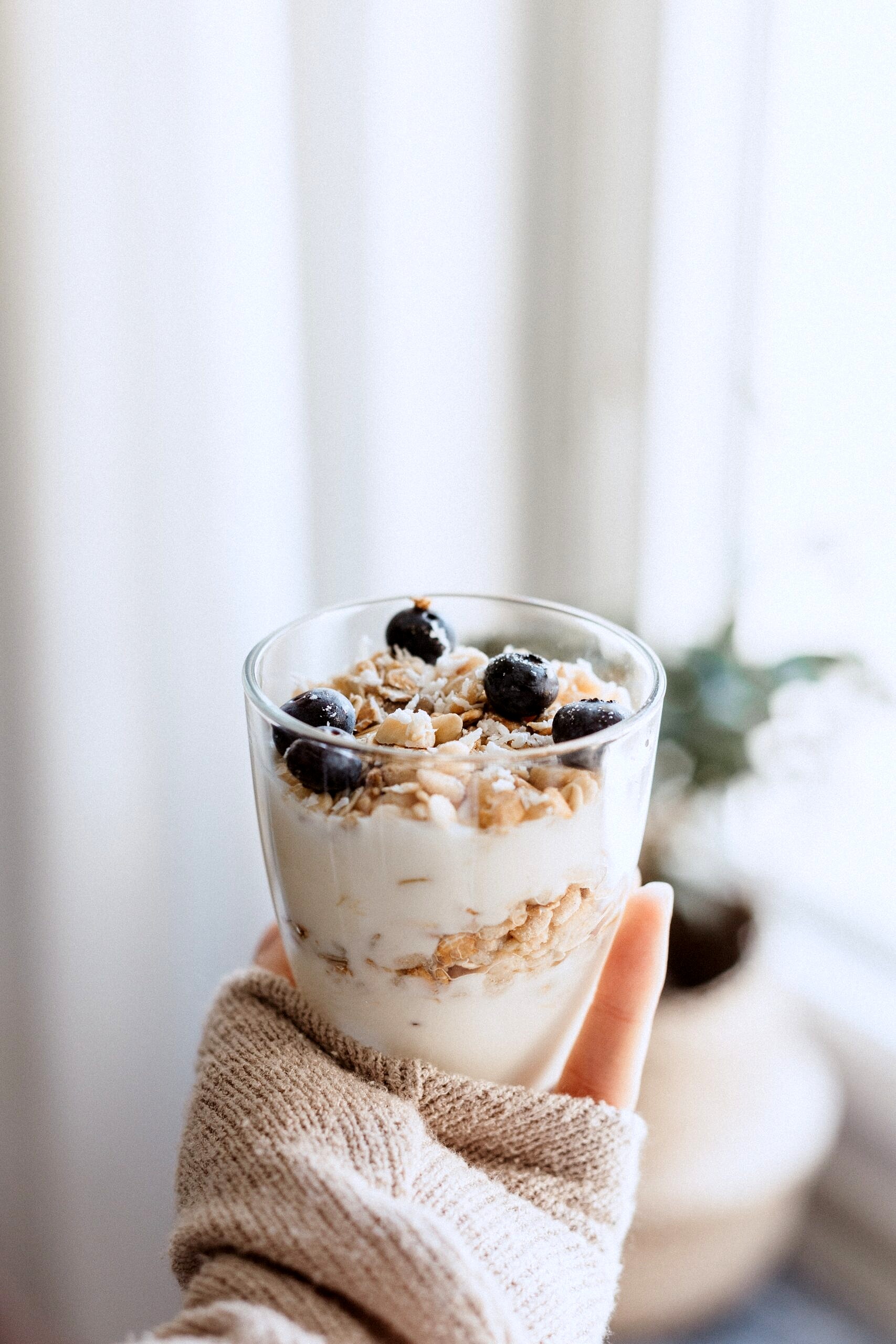
Physical Activity
Research suggests that rates of physical activity are often lower in new moms, likely because of the increased demands of motherhood and lack of energy as a result. But can exercise help to lower cortisol levels which, as we discussed, can promote weight retention and physical activity may also support weight loss efforts. Since a lot of women are less active postpartum, it can explain our propensity to hold onto extra weight gained in pregnancy.
Sleep
Any new mom will tell you that the luxury of an 8 hour sleep is hardly within reach when you’re up in the middle of the night for a feed. But, it’s still worth noting that, in general, sleep deprivation is associated with increased appetite and cortisol levels. In fact, one study found that the hunger hormone, ghrelin, was 15% higher in those who were sleep deprived compared to those who got enough sleep. Which explains why there exists an association between sleep deprivation and weight gain. So while you can breastfeed with all your might at the expense of sleep, the lack of sleep may be the very thing that is halting your weight loss.

How Many Calories Does Breastfeeding Burn?
Just like any metabolic mechanism, breastfeeding requires energy (aka calories) to get the milk flowing. To put it in perspective, pumping only 1 ounce of breast milk burns around 20 calories. With that in mind, on average, this translates to roughly 500 calories burned from breastfeeding alone. But of course, the total calories burned from breastfeeding is highly dependent on the frequency and duration of feeds.
How Many Calories Do You Need While Breastfeeding?
Due to the increased energy demands of breastfeeding, it is recommended that folks increase their calories by approximately 450-500 calories a day. However, these are rough guidelines and caloric intake will fluctuate based on frequency and duration of feeds, age, and activity level. For example, someone who is breastfeeding a 2 month old would burn more calories compared to someone breastfeeding and weaning their 7 month old. As a result, their total energy needs would differ.
Does Dieting & Exercising Reduce Breast Milk Supply?
In terms of how to lose baby weight while breastfeeding, trying to lose too much weight too soon may jeopardize milk supply in a lot of moms. In fact, one study found that breastfeeding mothers who consumed 68% of their caloric needs for 7 days saw decreases in milk volume the following week. However, most research suggests that folks who are underweight at baseline (aka were underweight pre-pregnancy) are more at risk of reduced milk supply from following a calorically restricted diet compared to women of “normal weight”. That is – women who have adequate fat stores to support breast milk production.

The negative impact on milk supply appears to be mostly associated with caloric restriction more so than physical activity as most research suggests that moderate exercise does not impact supply. In fact, regular physical activity may increase beneficial health compounds present in the breastmilk and increase postpartum mood, so weight loss goals or not, we encourage trying to sneak some activity into your day. However, It is worth noting that engaging in more strenuous physical activity may increase the presence of lactic acid in breast milk. While this is not inherently unsafe for baby, it may impact the palatability of the milk and result in a fussy baby. So if you do happen to engage in more intense exercise, it may be best to wait 30 mins before a feed.
Should You Attempt Weight Loss While Breastfeeding?
A lot of experts recommend waiting at least 2-4 months after initiating breastfeeding before attempting intentional weight loss in order to establish a steady milk flow. Personally, I do not advocate for moms to attempt weight loss at all in this “fourth trimester” while nursing if they can avoid it. The demands of early motherhood are so intense, I worry that stressing about how to lose baby weight doesn’t support postpartum mental health or recovery.
However, I also believe in body autonomy and I get questions every week about when and how to lose baby weight while breastfeeding. My approach here is to take the pressure off the number on the scale, and to focus on gentle nutrition tips that feel good to you and give you the mental and physical energy to bond with your babe. If weight loss occurs, then it is meant to occur. And if not, then keep it up and your body will find its natural happy weight set point when it’s time.
How to Lose Baby Weight: Gentle Nutrition Tips that Won’t Impact Milk Supply
Tip #1 – Turn Meals & Snacks Into Hunger Crushing Combos™
What if I told you that you can enjoy the foods that you love while breastfeeding without feeling deprived or having to count, track, or restrict calories? By incorporating hunger crushing compounds like fibre, protein and healthy fats at every meal and snack, it not only makes you feel satisfied but also helps you feel fuller for longer. Protein helps to reduce our hunger hormone, grehlin, while fibre and fat help to slow down how quickly food moves through the digestive tract, thereby helping you to feel full and stay full. So contrary to any diet that restricts calories and consequently makes you crave all of the things, balancing the foods you already enjoy by turning them into hunger crushing combos™ not only helps to support milk supply but also supports your overall health and wellbeing.
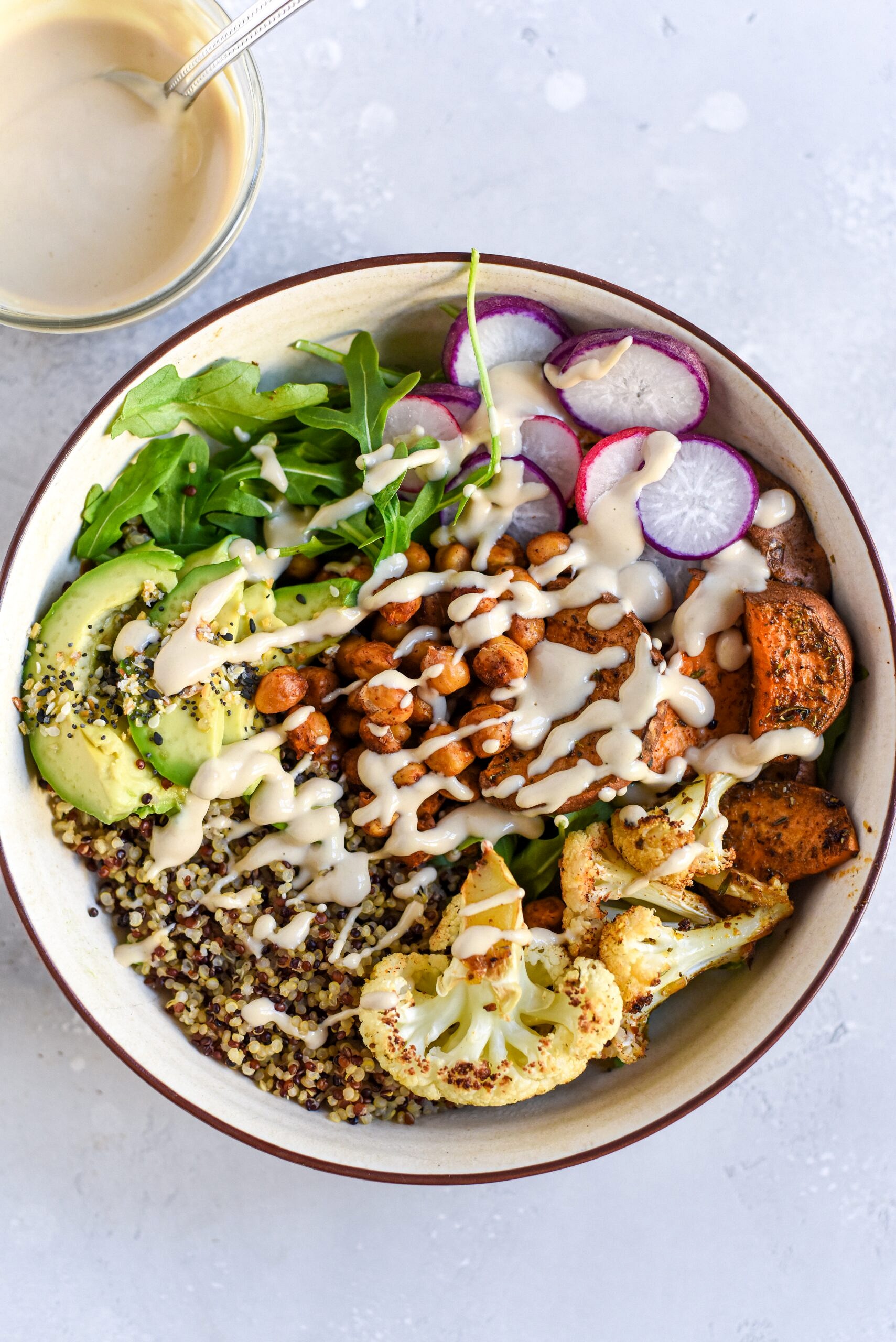
Tip #2 – Focus on Foods to ADD, not take away
Try this as a mindset shift – instead of focusing on foods to restrict, think about what you can add. If you’re craving pasta, rather than deny yourself because it isn’t “diet-friendly” think about ways you can nutritionally optimize this meal. For example, as per tip #1, perhaps you can throw in some chicken for protein, some veggies for fiber, and a pesto-based sauce for healthy fats. By thinking of ways to bump up the nutrition of your meals without depriving yourself of the foods you love, you can (quite literally) have your cake and eat it too. This also takes you out of the “scarcity mindset” that dieting can often perpetuate, and instead gives you permission to eat meals that are satisfying both physically and emotionally.
Tip #3 – Make Meal Prep Shortcuts Your BFF
In the weeks before giving birth, I was batch cooking like a mad woman so that I would have something ready to go for days when I could barely fit in a shower. So if you have the time and energy to batch cook, I would highly recommend it. But if not, don’t sweat it. Lean on easy cooking short cuts like rotisserie chicken, pre-shredded veg, canned goods, or pre-made sauce (look to these lettuce wraps, chicken casserole, or tortilla soup for recipe ideas). If you have a bit of extra time at your disposal, try prepping easy staples that you can combine to make a variety of different meals.
For example, I’ll cook some chicken or beef, prep a large batch of rice, then bake a variety of vegetables that I can pull from throughout the week. That way you can make a ton of different bowls, salads, wraps, or even sandwiches. But if you are really struggling to even go to the grocery store and put together a balanced meal, you can always think about using a grocery service or meal kit to make your life a little easier.
Tip #4 – Make Water Your Beverage of Choice
The benefit to drinking more water while breastfeeding is two fold. For one, it can help to replenish fluids lost to breastfeeding. And two, research suggests that drinking water before a meal can help to support modest weight loss, which is helpful when thinking about how to lose baby weight. While we don’t necessarily want water to displace calories from food, but by choosing water more often it can help to edge out more calorie-laden beverages like juice and soda.

Tip #5 – Sleep When You Can, As Much As You Can
As mentioned earlier, sleep deprivation is associated with an increase in appetite and the stress hormone, cortisol, which can result in weight gain and retention. While it is easier said than done, try catching up on your Zzz’s by sleeping when the baby is sleeping. It may seem like the perfect time to do dishes or laundry, but allow your mental health to take precedence over daily chores. This may also be a good time to revisit your sleep hygiene and establish a healthy nighttime routine. Perhaps that means reducing screen time before bed, doing a nightime meditation, doing some light stretches etc.
Tip #6 – Practice Joyful Exercise
As discussed, engaging in moderate-to-intense exercise is safe while breastfeeding and is unlikely to impact milk supply. But before you go ham at the gym in an effort to hit your weight loss target, I encourage you to shift your mindset from being goal-driven to purpose-driven. In other words, enjoying the act of movement as a form of self-care, rather than the outcome (i.e weight loss). I actually think it’s really helpful to decouple your association of exercise for the sole purpose of weight loss, and to instead reframe it as a way to support your physical and mental health. In doing so, you are also helping to support other factors associated with weight retention like decreasing stress levels and supporting sleep.

So my suggestion is to think about movement that you actually enjoy and will help you to reap both the physical and mental benefits. Plus, the more you actually enjoy your workout the more likely you will stick to it. It is also important to ease into exercise slowly and gradually. Maybe start with a brisk walk, try some light stretches or a gentle yoga flow, and eventually work your way up to higher intensity activities if this is what you enjoy. Joyful movement can be a really helpful tool for sustainable weight loss!
Tip #7 – Be Compassionate and Gentle With Yourself
If there is one takeaway from this post, let it be this – be gentle and compassionate with yourself. Remember that your body is an incredible vessel that brought LIFE into the world. That’s freaking badass! So no matter what your weight loss goals are, whether you achieve them, or how long they take, remember that re-establishing a healthy routine should be about self-care, not self-control or punishment. Focus on healthy behaviours that you can sustain and can benefit both your physical and mental health. Let go of any fixation on a specific number, and focus on other markers of health like energy levels, sleep, digestion, mood, and reduced stress.
Bottom Line
I totally understand the social pressure to “bounce back” to your pre-pregnancy weight. In fact, I wrote a whole blog post about my personal experience on navigating the social pressure of getting my “body back”. I also understand that there is a ton of misinformation around weight-loss expectations and how to lose baby weight.
So if you are struggling with the weight of it all, while also trying to stay afloat in the crazy world of new motherhood, just know that you are NOT a failure. You are literally a SUPERWOMAN who brought life into this world. That is so beautiful and your body is something to be celebrated at any size! So give yourself and your body some grace, and the TLC that it deserves by getting back to basic self-care – sleep, nourishment, movement, and self-love. You got this mama!
Contribution by Ashlyn Ellis, RD MS and Giselle Segovia, RD MHSc
More Blog Posts You Might Like:
If you liked this blog post discussing how to lose baby weight while breastfeeding, then you might also enjoy more blog posts on breastfeeding:
- Mom Guilt | My Breastfeeding Failure Story
- How Much Caffeine Can You Have While Breastfeeding?
- Cow’s Milk Protein Allergy in Infants | Should Breastfeeding Moms Go Dairy Free?
- The Truth About Drinking Alcohol While Breastfeeding: Will it Harm My Baby?
- The Ultimate Exclusively Pumping & Breastfeeding Essentials Guide
- Is Soy Formula Bad for Babies That Are Vegan or Allergic to Dairy?
- Do Certain Foods Really Help Morning Sickness
Mamas, I want to hear from you: What has your experience been like postpartum? Leave me a comment!

Abbey Sharp is a Registered Dietitian (RD), regulated by the Ontario College of Dietitians. She is a mom, YouTuber, Blogger, award winning cookbook author, media coach specializing in food and nutrition influencers, and a frequent contributor to national publications like Healthline and on national broadcast TV shows.
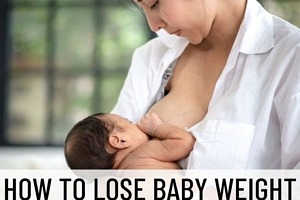




Leave a Comment